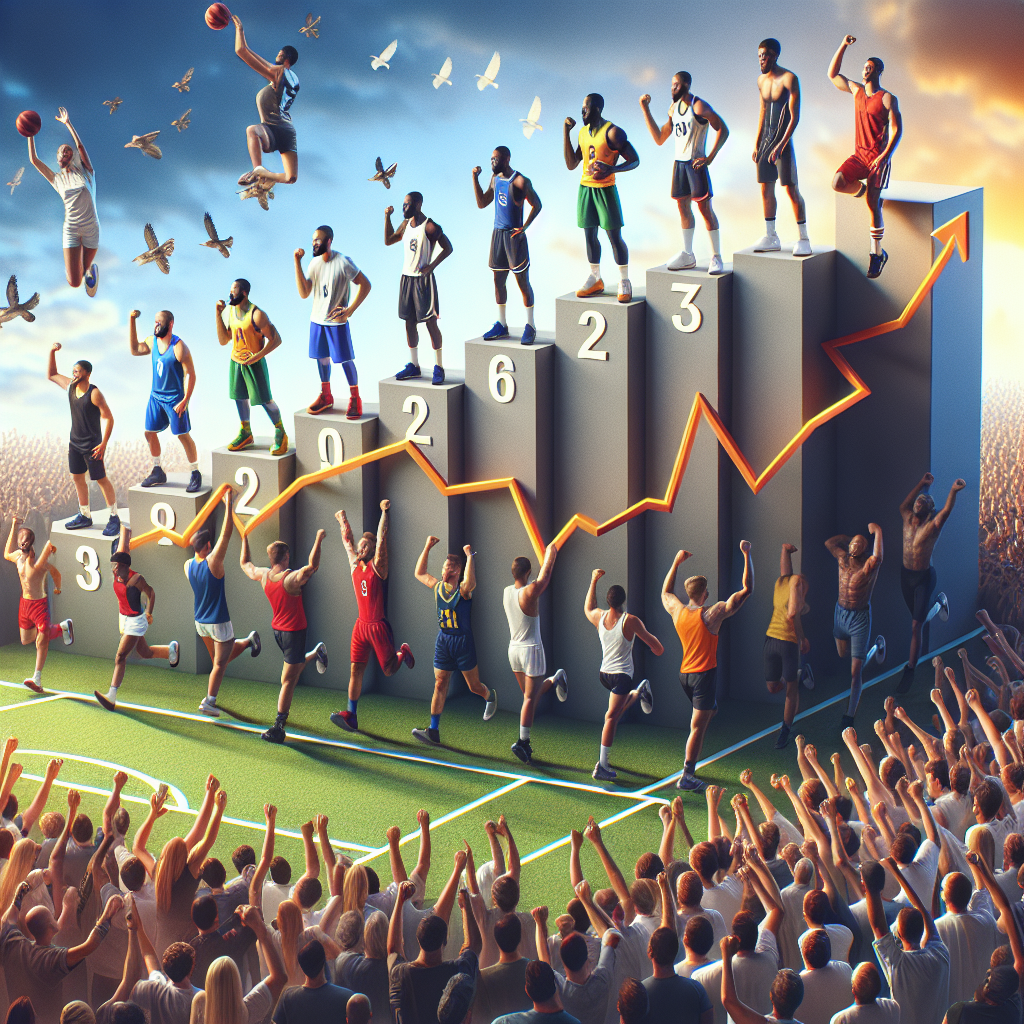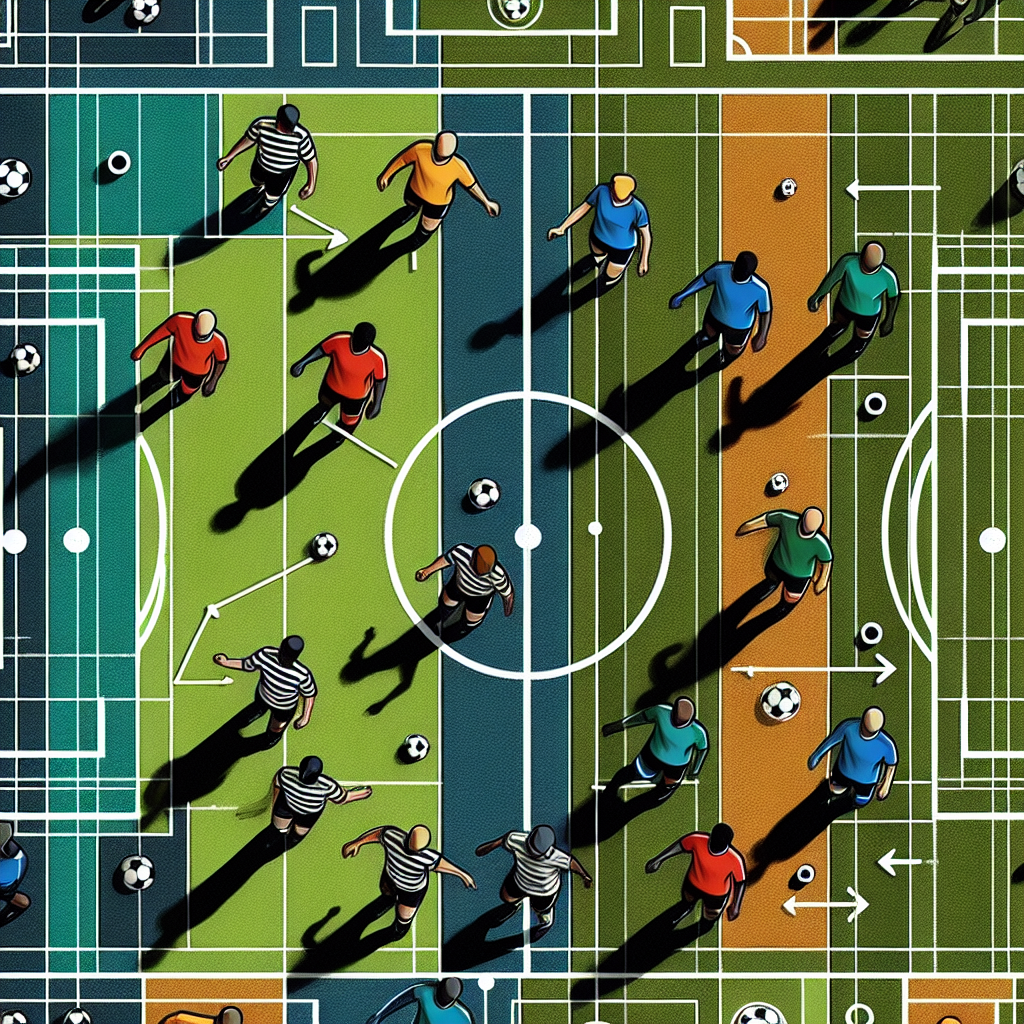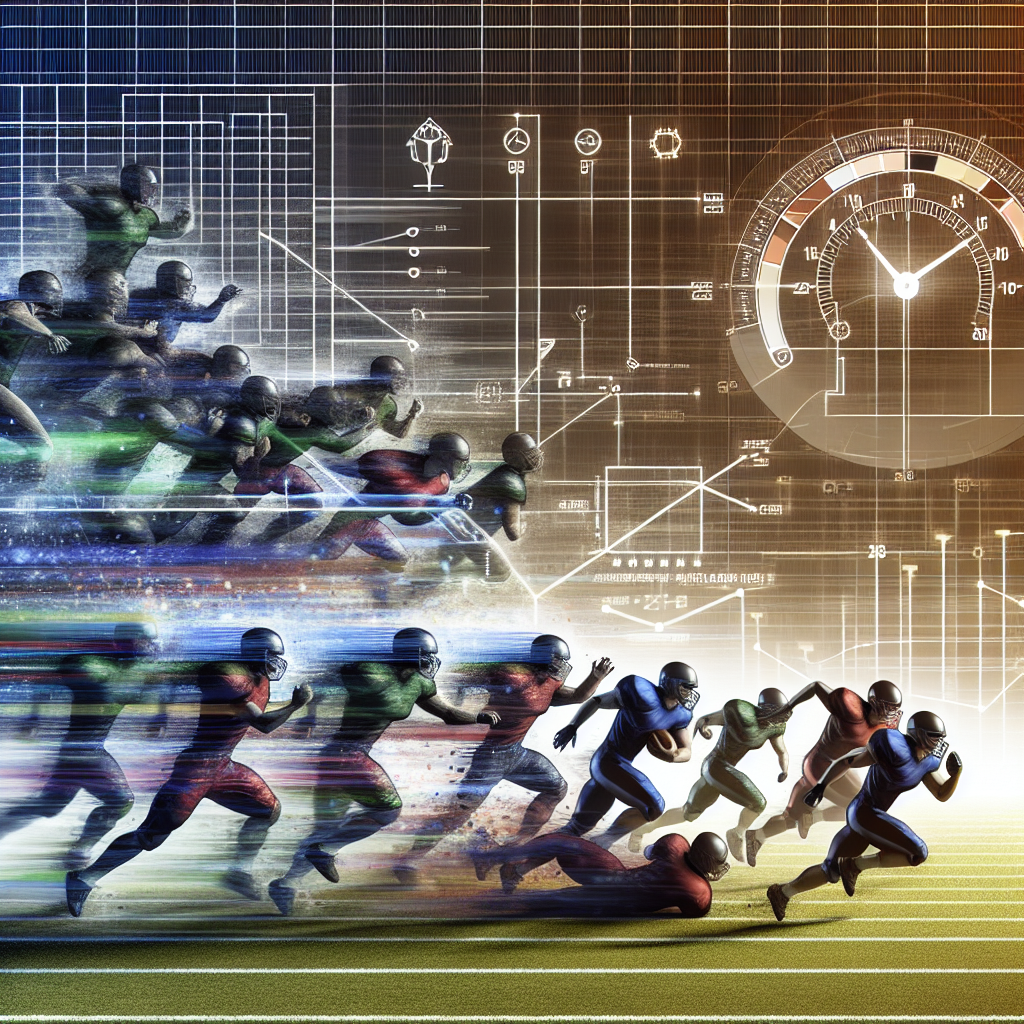
How Sports Rankings Shape Public Perception of Athletes
Introduction
In the competitive world of sports, public perception of athletes is often significantly influenced by rankings, whether they be in individual sports, team standings, or player evaluations. These rankings serve as a reflection of an athlete’s performance, skill level, and perceived potential, playing a crucial role in shaping how fans, sponsors, and the media view them. As of 2025, with advancements in technology and data analytics, the process behind sports rankings has become more sophisticated, leading to increased emphasis on metrics and statistics. Understanding how sports rankings shape public perception can offer insights into the dynamics of fame, endorsement opportunities, and overall athlete branding.
Understanding Sports Rankings and Their Importance
Sports rankings are systematic evaluations that categorize athletes or teams based on their performance, achievements, and statistical analysis. In various sports, from basketball to golf, rankings can fluctuate frequently, reflecting ongoing competitions and changing performances. In 2025, platforms such as the World Tennis Association (WTA) and the Association of Tennis Professionals (ATP) utilize complex algorithms that take into account match outcomes, the strength of opponents, and tournament significance to recalibrate player rankings. The priority placed on these rankings underscores their importance, as they can dictate seedings in tournaments, enhance visibility, and influence the financial dynamics of athlete contracts.
Moreover, rankings provide a benchmark for fans and experts alike to gauge an athlete’s growth trajectory and standing within the sport. High visibility in rankings often equates to increased media attention and fan engagement. For instance, athletes ranked among the top ten in their respective sports attract sponsorship deals and public interest that can significantly enhance their income and marketability. Athletes like Lionel Messi or LeBron James have demonstrated how high-ranking status can transcend the sporting arena, turning them into global icons and role models.
The Media’s Role in Propagating Rankings
The media plays a pivotal role in disseminating information about sports rankings, amplifying their impact on public perception. Sports journalism and broadcasting aim to keep fans informed about ranking updates, performance analyses, and breakdowns of athletes’ statistics, which can dramatically influence audience sentiments. As of 2025, with the rise of social media platforms, the instantaneous nature of information sharing means that rankings are often discussed and debated in real-time. Sports networks and online news outlets provide ongoing coverage, creating narratives around athletes that can bolster or tarnish their reputations based on their ranking fluctuations.
Furthermore, media portrayal of athletes based on rankings can impact endorsement opportunities. Brands often gravitate toward highly ranked athletes, believing their public appeal and visibility will translate into higher sales and greater brand loyalty. An athlete who is ranked number one is not only celebrated but is often seen as an aspirational figure, leading to an interesting interplay between marketing, public perception, and sports rankings. Athletes may experience pressure due to this visibility, as they are not only competing against their rivals in the arena but also fighting to maintain their status in the public eye.
Social Media and Fan Engagement
In today’s digital era, social media acts as a double-edged sword, shaping public perception of athletes based on their rankings while simultaneously giving fans a platform to voice their opinions. Athletes ranked at the top often receive an overwhelming amount of support from fans and can experience a surge in followers, which translates into a greater online presence. For example, in 2025, younger athletes who rank well receive endorsements and collaborative opportunities with influencers, further enhancing their image and popularity. Conversely, athletes who drop in rankings may endure online backlash or scrutiny, leading to discussions on mental health among professional athletes.
Engagement can also manifest through fan-driven campaigns, where supporters rally around their favorite athletes to influence the broader narrative. Platforms like Twitter and Instagram allow fans to share content and create hashtags that can go viral, leading to increased attention for ranked athletes. The phenomenon of “cancel culture” has also become prevalent, where athletes who slip in rankings or experience controversies face immediate public judgment and fallout. Thus, managing public perception in the face of ranking fluctuations requires athletes to be more than just competitors; they must also be savvy image managers in the age of social media.
The Psychological Effects of Rankings on Athletes
The psychological impact of rankings on athletes cannot be understated. Ranked athletes often experience intense pressure to maintain or elevate their standings, which can lead to performance anxiety and burnout. As of 2025, the conversation surrounding sports psychology has become more mainstream, with elite athletes opting for mental coaching to handle the stress that accompanies public scrutiny and expectation. The “win or lose” mentality, heavily influenced by rankings, can take a toll on an athlete’s mental health, emphasizing the need for comprehensive support systems.
Moreover, fluctuations in rankings can affect an athlete’s self-esteem and motivation. Athletes who experience a fall in their rankings may grapple with feelings of inadequacy or defeat, leading to a potential decline in performance and further erosion of their public image. Addressing this cycle, many athletes now promote resilience and the importance of mental health in sports, as evidenced by initiatives in professional leagues aimed at reducing stigma around mental health discussions. These dynamics continue to evolve as athletes become more vocal about their struggles and emphasize the importance of holistic well-being alongside athletic achievements.
The Future of Sports Rankings and Athletes’ Public Perception
Looking ahead, the landscape of sports rankings and their influence on public perception is poised for transformation. The integration of advanced analytics, artificial intelligence, and machine learning is shaping how rankings are determined and distributed in real-time. By 2025, organizations are shifting towards more personalized evaluations that consider not only performance statistics but also aspects like fan engagement and social media presence. This holistic approach could refine how rankings are perceived and understood, making public perception even more multifaceted.
Moreover, as athletes embrace platforms that allow them to share their stories, opinions, and values, their public persona may begin to take precedence over traditional rankings. In a world increasingly driven by authenticity, fans are gravitating towards athletes who convey relatability and resilience rather than merely those at the top of the leaderboard. Endorsement deals and sponsorships may evolve to prioritize connection over ranking, as brands seek authentic ambassadors who resonate with their target audiences. This shift mirrors a broader trend in consumer behavior, indicating a potential redefinition of how rankings and the athletes’ identities intertwine in the future.
Conclusion
In summary, sports rankings significantly shape public perception of athletes, influencing their status, marketability, and overall mental well-being. As we advance into 2025, the interplay between rankings and media narratives becomes even more complex, driven by social media engagement, evolving psychological insights, and the growing importance of personal branding. Understanding how these facets interact can shed light on the dynamics of sports culture—balancing the exhilaration of competition with the profound challenges athletes face away from the field. Ultimately, it becomes paramount for both athletes and stakeholders to navigate this intricate landscape with awareness, as the implications of rankings will continue to reverberate throughout the realm of professional sports.
FAQs
How are sports rankings determined?
Sports rankings are typically based on a combination of performance metrics, head-to-head competition results, and historical data analysis. Each sport has its own criteria, which can include win-loss records, points scored, and the difficulty of opponents faced.
Do rankings affect an athlete’s endorsements?
Yes, higher rankings can lead to increased visibility and media attention, which often attract lucrative endorsements and sponsorships. Brands typically prefer partnering with top-ranking athletes due to their perceived popularity and market appeal.
What psychological effects do rankings have on athletes?
Rankings can induce pressure and anxiety, leading athletes to experience stress related to maintaining or improving their standings. This constant scrutiny can impact their performance and mental health, highlighting the importance of mental wellness in sports.
How has social media changed the way rankings influence public perception?
Social media allows for instant sharing of rankings and public discourse around them. It amplifies fan engagement and provides a platform for both support and critique, influencing how athletes are viewed inside and outside their sport.
Will rankings continue to be important in the future of sports?
While rankings will likely remain significant, their role may evolve as athletes increasingly prioritize authenticity and connection with fans. Enhanced analytics and personal branding will redefine how success is perceived in the sports arena.
Understanding Team Offensive Efficiency Ratings
16. Dezember 2025The Role of Advanced Stats in Evaluating Team Chemistry
16. Dezember 2025How to Interpret Team Defensive Metrics
16. Dezember 2025
Leave a reply Antwort abbrechen
-
Injury Impact: Predicting Outcomes for Key Players
3. Dezember 2025 -
The Impact of Conservative Policies on Job Creation
26. November 2025 -
The Role of Independent Candidates in UK Elections
20. November 2025



